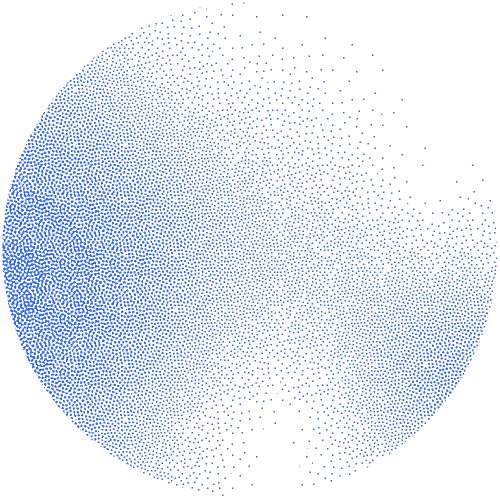ATGCCGGAATTGGCACATAACAAGTACTGCCTCGGTCCTTAAGCTGTATTGCACCATATGACGGATGCCGGAATTGGCACATAACAAGTAC
TGCCTCGGTCCTTAAGCTGTATTGCACCATATGACGGATGCCGGAATTGGCACATAACAACGGTCCTTAAGCTGTATTGCACCATATGACG
GATGCCGGAATTGGCACATAACAAGTACTGCCTCGGTCCTTAAGCTGTATTTCGGTCCTTAAGCTGTATTCCTTAACAACGGTCCTTAAGG
ATGCCGGAATTGGCACATAACAAGTACTGCCTCGGTCCTTAAGCTGTATTGCACCATATGACGGATGCCGGAATTGGCACATAACAAGTAC
TGCCTCGGTCCTTAAGCTGTATTGCACCATATGACGGATGCCGGAATTGGCACATAACAACGGTCCTTAAGCTGTATTGCACCATATGACG
GATGCCGGAATTGGCACATAACAAGTACTGCCTCGGTCCTTAAGCTGTATTTCGGTCCTTAAGCTGTATTCCTTAACAACGGTCCTTAAGG


Single-Cell Transcriptomics with R



09 June 2026

09 June 2026




For-profit: 1500 CHF

Next course(s):
| 11 - 13 Nov 2026 |

|
Bellinzona |
Overview
Single-cell RNA sequencing (scRNAseq) allows researchers to study gene expression at the single cell level. For example, scRNAseq can help to identify expression patterns that differ between conditions within a cell-type. To generate and analyze scRNAseq data, several methods are available, all with their strengths and weaknesses depending on the researchers’ needs.
This 3-day course will cover the main technologies as well as the main aspects to consider while designing a scRNAseq experiment. In addition, it will cover the theoretical background of analysis methods with hands-on practical data analysis sessions applied to droplet-based methods.
Audience
This course is designed for PhD students, postdoctoral and other researchers in the life sciences from both academia and industry who are familiar with next-generation sequencing (NGS) and want to acquire the necessary skills to analyse scRNA-seq gene expression data.
Learning outcomes
At the end of the course, the participants are expected to:
- Distinguish advantages and pitfalls of scRNA-seq, including its applications in experimental design.
- Design their own scRNA-seq experiment, by using common technologies like 10X Genomics.
- Apply quality control (QC) measures and utilize analysis tools to preprocess scRNA-seq data.
- Apply normalization, scaling, dimensionality reduction, and integration and clustering on single-cell transcriptomics data techniques using R.
- Differentiate between cell annotation techniques to identify and characterize cell populations.
- Use differential gene expression analysis methods on single-cell transcriptomics data to gain biological insights.
- Select enrichment analysis methods appropriate to the biological question and data.
- Develop a single-cell transcriptomics data analysis workflow from raw count matrix to differential gene expression with peer support and light guidance.
Prerequisites
Knowledge / competencies
You should meet the learning outcomes of Introduction to bulk RNA-Seq: From Quality Control to Pathway Analysis, NGS - Quality control, Alignment, Visualisation, First Steps with R in Life Sciences and UNIX Fundamentals.
In summary, participants must have basic knowledge in Next-Generation Sequencing (NGS) techniques, R (evaluate your R skills here) and UNIX (test your skills here).
Technical
Attendees should have a Wi-Fi enabled computer. An online R and RStudio environment will be provided. However, in case you wish to perform the practical exercises on your own computer, please install an R version > 4.0 and the latest RStudio version (the free version is perfectly fine) before the course.
Schedule
The course schedule will be communicated in due time; that for past occurences is found on GitHub.
Application
The registration fees for academics are 300 CHF and 1500 CHF for for-profit companies. While participants are registered on a first come, first served basis, exceptions may be made to ensure diversity and equity, which may increase the time before your registration is confirmed.
Applications will close once the places will be filled. Deadline for registration and free-of-charge cancellation is set to 09/06/2026. Cancellation after this date will not be reimbursed. Please note that participation in SIB courses is subject to our general conditions.
You will be informed by email of your registration confirmation. Upon reception of the confirmation email, participants will be asked to confirm attendance by paying the fees within 5 days.
Venue and Time
This course will take place in Zurich.
It will start at 9:00 and end around 17:00 every day.
Precise information will be provided to the participants in due time.
Additional information
Coordination: Monique Zahn, SIB Training group.
We will recommend 0.75 ECTS credits for this course (given a passed exam at the end of the course).
You are welcome to register to the SIB courses mailing list to be informed of all future courses and workshops, as well as all important deadlines using the form here.
Please note that participation in SIB courses is subject to our general conditions.
SIB abides by the ELIXIR Code of Conduct. Participants of SIB courses are also required to abide by the same code.
For more information, please contact training@sib.swiss.
